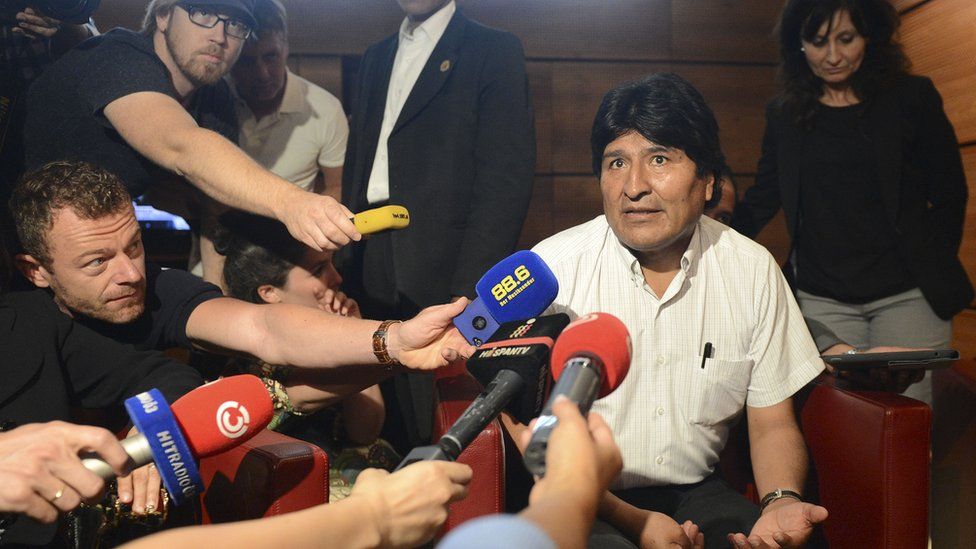ADVERTISEMENT Belarus plane arrest - is it a first?
The forced diversion of a Ryanair passenger plane to Belarus's capital Minsk on Sunday, and the arrest of a dissident journalist on board, have caused outrage elsewhere in Europe.
The civilian aircraft was flying from Greece to Lithuania, passing through Belarus's airspace, when Belarus sent a fighter jet to intercept it, claiming there was a bomb threat.
The pilots of the Ryanair flight were obliged to follow the instructions of the military plane.
The events have been condemned by the EU and the US. But has a similar intercept happened before?
Russian foreign ministry spokeswoman Maria Zakharova accused Western countries of hypocrisy, saying (in Russian) that nations "had reacted differently to similar events which took place in other countries earlier".
She referred particularly to an incident eight years ago involving the plane of Bolivia's then-President Evo Morales.
Here's a look back at previous incidents where planes may - or may not - have been forced to land.
2013: Bolivian president's plane lands in Vienna
In July 2013 Evo Morales was flying back to Bolivia from a summit in Moscow, when his jet had to divert to Vienna airport in Austria after several other European countries apparently refused it permission to enter their airspace.
Bolivia said that there had been a "huge lie" that US intelligence leaker Edward Snowden - at that time holed up in a Moscow airport - was on board the presidential aircraft.
France later apologised to the Bolivian government for the "late confirmation of permission" to enter French airspace, blaming "conflicting information".
However, the analogy to Sunday's incident in Belarus is not perfect, as Mr Morales's plane was not intercepted by fighter jets and forced to land - it was not granted permission to enter the other countries' airspace in the first place.
The Bolivian president was also travelling on a state aircraft rather than a commercial, civilian passenger plane.
The UN's agency for civil aviation, ICAO, said it was strongly concerned about an "apparent forced landing" in the Belarus incident which could be "in contravention of the Chicago Convention" setting out the rules on accessing airspace and aircraft safety.
The 1944 Chicago convention applies to civilian planes, such as the Ryanair flight, but not to state aircraft such as presidential or military planes.

Comments
Post a Comment